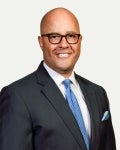Supreme Court Hears Oral Argument in McDonnell Public Corruption Case
Last week, United States Supreme Court Justice Stephen Breyer framed the overarching issues facing the Court during oral argument in United States v. McDonnell this way:
“One, political figures will not know what they’re supposed to do and what they’re not supposed to do, and that’s a general vagueness problem.
And the second is, and call it a separation of powers problem. The Department of Justice in the Executive Branch becomes the ultimate arbiter of how public officials are behaving in the United States, State, local and national.”
Oral Argument Transcript at 32 (April 27, 2016).[1] The Court’s ruling on these issues – expected sometime in June of this year – may define, or redefine, the scope of appropriate behavior for public officials in the United States in a dramatic new way.
As we have written before, former Virginia Governor Robert McDonnell was convicted at trial of violations of the honest-services wire fraud statute, 18 U.S.C. §§ 1343 and 1346, and of Hobbs Act extortion under 18 U.S.C. § 1951(a)[2]. The facts underlying the prosecution centered on favors McDonnell allegedly provided for a constituent in return for “multiple five-figure payments and loans, expensive getaways, shopping trips, golf outings, and a Rolex watch.” United States v. McDonnell, 792 F.3d 478, 515 (4th Cir. 2015).
The argument before the Supreme Court centered in large part on where to draw the line between routine advocacy by a public official on behalf of his/her constituents on the one hand and violating one’s duty of honest services on the other. Put legally, the Court is attempting to define what constitutes an illegal quid pro quo arrangement.[3] Members of the Court peppered McDonnell’s counsel and the Solicitor General with a range of hypotheticals as they struggled to come to terms with how and where to draw that line. The answers the two sides gave reveal a wide and deeply important gulf that the Court will attempt to bridge in order to ensure honest conduct by our elected officials while recognizing the need and historical precedent for advocacy by those officials on behalf of their constituents and those interests they support.
Mr. McDonnell’s counsel argued for a bright line rule that authorized a range of supposedly routine tasks by carving out categories of prohibited actions. Noel Francisco, counsel for Mr. McDonnell asked the Court to limit the definition of official action to “either making a decision . . . or you’re urging someone else to do so.” Oral Argument Transcript at 14. This led to a lengthy discussion with Justice Breyer as the Justice searched for the exact wording necessary to define official action and to cabin the scope of illegal conduct. As Justice Breyer told Mr. Francisco, “you have to have the standard that will distinguish the urger from the one who does it criminally and the one who doesn’t.” Id. at 17.
Michael Dreeben, the Deputy Solicitor General of the United States, argued that prosecutors should be allowed to prosecute “a person who, as opportunities arose, was going to engage in ‘official acts’ . . . and really form a composite window into [that person’s] mind. Did he intend to allow his official conduct to be controlled by the things of value that he received? And taking them all together, even if the Court has trouble with any individual one, they allowed a rational jury to infer[] that, indeed, he did.” Id. at 55. This is what the United States Justice Department routinely refers to as a “stream of benefits” theory of prosecution.
The McDonnell attorneys want a bright line rule that limits prosecutors’ authority and recognizes that public officials provide favors and favorable consideration for and to their constituents. The Justice Department, on the other hand, wants the latitude and discretion to view a public official’s actions from a much higher altitude to determine whether the patterns, the timing and the juxtaposition (as well as any particularly damning pieces of evidence) point to a payoff in return for access, encouragement and/or help of any kind. If Governor McDonnell prevails, the range of conduct that may form the basis of a public corruption prosecution may be seriously limited to the most direct and definable actions taken in return for benefits and favors. If the Justice Department prevails, public officials will continue to face heightened scrutiny for the course and scope of their relationships and the benefits they receive within those relationships.
It is obvious that the Supreme Court is struggling with this complex and potentially far-reaching set of issues. The Court asked questions about the wording of any rule that would guide public officials and prosecutors; the hypotheticals explored a range of options; and some Justices seemed to be trying to find a middle ground as to the Governor’s behavior. The decision will be a tough one to draft because of the complexity of our political life and because of the serious implications it carries. That struggle was described plainly by Justice Breyer: “[W]e need some protection on both sides, even though the line won’t be perfect.” Id. at 47. The Court’s opinion will be awaited anxiously, and, regardless of the outcome, public officials and candidates will be affected mightily.
Please keep an eye out here for our detailed analysis of the Court’s opinion when it is issued in June.
[1] The full transcript may be viewed at http://www.supremecourt.gov/oral_arguments/argument_transcripts/15-474_19m1.pdf.
[2] In a separate matter the Supreme Court ruled this week that a Hobbs Act extortion case can be based on facts wherein the “victim” of the crime (the one paying the bribe to the public official) can be a knowing participant in the crime. See, Ocasio v. United States, No. 14-361 (May 2, 2016). The full opinion may be viewed at the following link: http://www.supremecourt.gov/opinions/15pdf/14-361_db8e.pdf.
[3] The Supreme Court has attempted to tackle this issue repeatedly in the last 40 years. Older decisions allowed for limitations on financial contributions to public officials to prevent even an appearance of influence. However, more recently the Court has limited corruption prosecutions to those cases in which the government can establish a quid pro quo sale of “official action,” i.e., payments made in return for an explicit promise or undertaking by the official to perform an official action. See, McCutcheon v. FEC, 134 S.Ct. 1434 (2014) (the making of contributions within an election, but not in an effort to control the exercise of the officeholder’s performance of his official duties, does not give rise to quid pro quo corruption); Citizens United v. FEC, 558 U.S. 310 (2010) (impossible to avoid favoritism and influence in representative politics).



